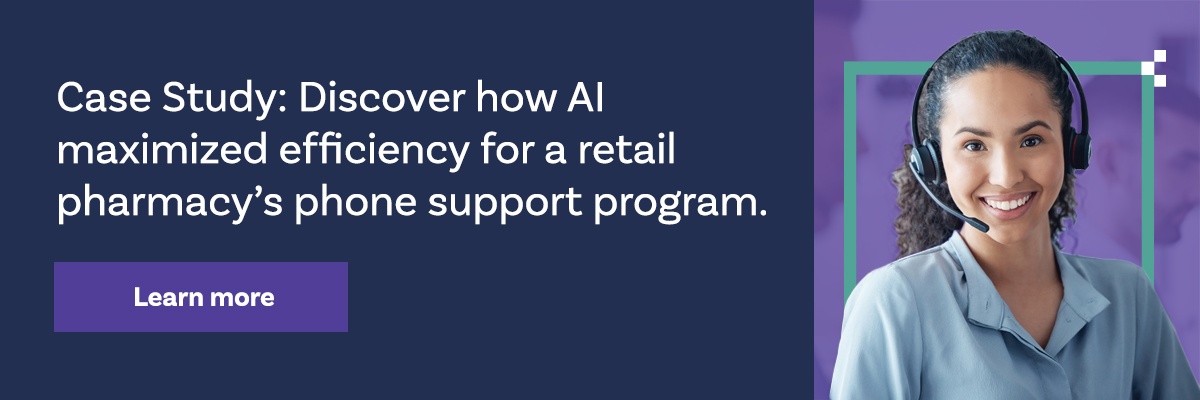Medication non-adherence is a long-standing problem in the healthcare industry, significantly impacting patient outcomes and contributing to the rising costs of care.
For patients in their teenage years, taking medications as prescribed presents even greater challenges. Adherence rates hover around 50 percent for people with chronic conditions, and may be as low as 30 percent among patients who are 10-19 years old.
There are a slew of reasons for medication non-adherence in teens. Some teens may be embarrassed due to the stigma or be in denial about their condition, whereas others may simply be forgetful, unsure of whether the medication helps, or struggle with unwelcome side effects.
Whatever the reason for teenage non-adherence, failure to take medications as prescribed can have severe consequences for patients.

Learn 7 Ways to Prevent Medication Non-Adherence in Teens
Make Sure to Start Off Strong
Helping teenage patients get off to a good start with medication adherence is a great way to set a strong precedent from the very first fill. That’s why from the initial recommendation for treatment, teens should be fully aware of what they’re being prescribed, why it’s essential for their overall health and well-being, and how to properly take their medication.
Prescribe with Adherence in Mind
When treating teenagers, providers should make it a point to prescribe medications with adherence in mind. For example, once-a-day medications are easier to remember and take consistently than drugs taken twice daily. Also, avoid prescribing instructions that require drugs to be taken during school hours, as this may be a barrier to adherence.
Get Their Parents Involved
Parents and other family members can help teens improve medication adherence by discussing concerns, creating a schedule, and rewarding them for positive medication behaviors. Family support plays an essential role in adherence, particularly among teens and adolescents who are less likely to be adherent on their own.
Provide Educational Resources
Teens with a limited understanding of their diagnosis and treatment plan have a greater likelihood of medication non-adherence. By engaging teens with educational resources and ensuring they understand how valuable and necessary their medications are, pharmacists, prescribers, and parents can increase the chances that the teen becomes and remains compliant.
Set and Stick to a Schedule
Another way to prevent medication non-adherence in teenagers is to encourage them to set and stick to a schedule. Suggesting that young adults take their medications at the same time each day will establish a regular routine and address medication non-adherence due to forgetfulness. Incorporating in an activity the teen does on a daily basis, can often help with reinforcing a consistent medication schedule.
Create a Reminder System
Teenagers can be absent-minded—especially in the digital age. Even with the most strict and dedicated regimen, they’re likely to forget their medication at some point. To get ahead of this, help them set up reminders via a smartphone alarm, text messaging program, smart pill bottle, or a note by the medication—whatever works.
Manage Any Side Effects
Side effects are an unpleasant, yet often unavoidable, result of taking prescription medications. Helping teens identify and manage any unwelcome side effects that may be contributing to non-adherence can be highly effective when it comes to addressing barriers and improving compliance.
Discover How AI Can Reduce Medication Non-Adherence in Teens
Many teenagers are more prone to medication non-adherence than adults, but there are steps pharmaceutical manufacturers, pharmacists, parents, and providers can take to motivate and support adolescents to take medications as prescribed. Learning and addressing barriers to adherence—and taking proactive steps to improve medication behaviors in young people—can improve treatment results and health outcomes as a whole and in the future.
AllazoHealth’s AI platform provides deep insights on medication behaviors and the optimal content, channels, timing, and cadence, to drive the next-best-action for each individual, powering confident decision making at every stage of the patient healthcare journey, from patient support program enrollment and initiation to adherence and long-term compliance. Using the company’s technology can assist you in targeting the right patients with the right message at the right time via the right channels – at scale – maximizing the impact and efficiency of pharmaceutical patient marketing and patient support programs.
